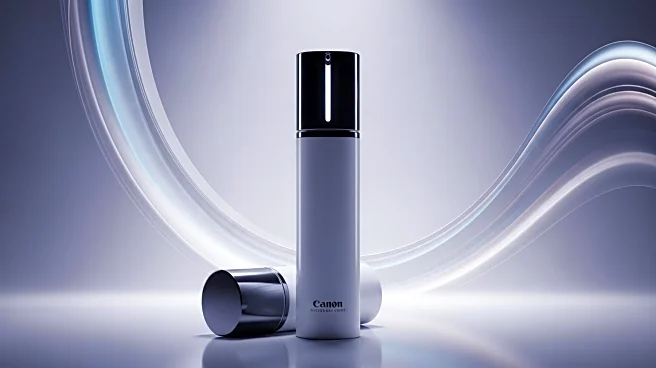What's Happening?
Mintel, a leader in market intelligence, has unveiled three key predictions for the beauty and personal care (BPC) industry that are expected to shape the sector by 2026 and beyond. These predictions include Metabolic Beauty, Sensorial Synergy, and the Human Touch Revolution. Metabolic Beauty suggests a convergence of health, technology, and personalization, where beauty products will merge with healthcare to offer insights into overall health. Sensorial Synergy emphasizes the importance of emotional wellness, transforming beauty experiences into multi-sensory rituals. The Human Touch Revolution highlights a shift towards authenticity and imperfection, moving away from algorithmic filters and hyper-polished marketing.
Why It's Important?
These predictions indicate a significant transformation in the BPC industry, where beauty products will not only enhance appearance but also provide health insights and emotional wellness. This shift could redefine consumer expectations, with brands needing to focus on authenticity and personalization to remain competitive. The emphasis on emotional wellness and human touch suggests a move towards more meaningful and personal beauty experiences, potentially impacting marketing strategies and product development. Companies that adapt to these trends may gain a competitive edge by aligning with consumer desires for authenticity and emotional resonance.
What's Next?
As these trends unfold, beauty brands are likely to evolve into partners in preventative care, offering products that enhance appearance while providing actionable health data. The industry may see increased investment in biomarker testing and bio-intelligent technologies, enabling personalized solutions for consumers. Brands will need to balance technological advancements with the human touch, showcasing their processes and imperfections to build trust and authenticity. This evolution could lead to new collaborations between beauty and healthcare sectors, as well as innovative product offerings that cater to the growing demand for wellness-driven beauty.
Beyond the Headlines
The shift towards authenticity and imperfection in beauty could have broader cultural implications, challenging traditional beauty standards and promoting diversity and inclusivity. As consumers seek more genuine and expressive beauty experiences, brands may need to reconsider their marketing strategies, focusing on storytelling and emotional connection rather than perfection. This trend could also influence other industries, such as fashion and lifestyle, as the demand for authenticity and emotional resonance grows.










